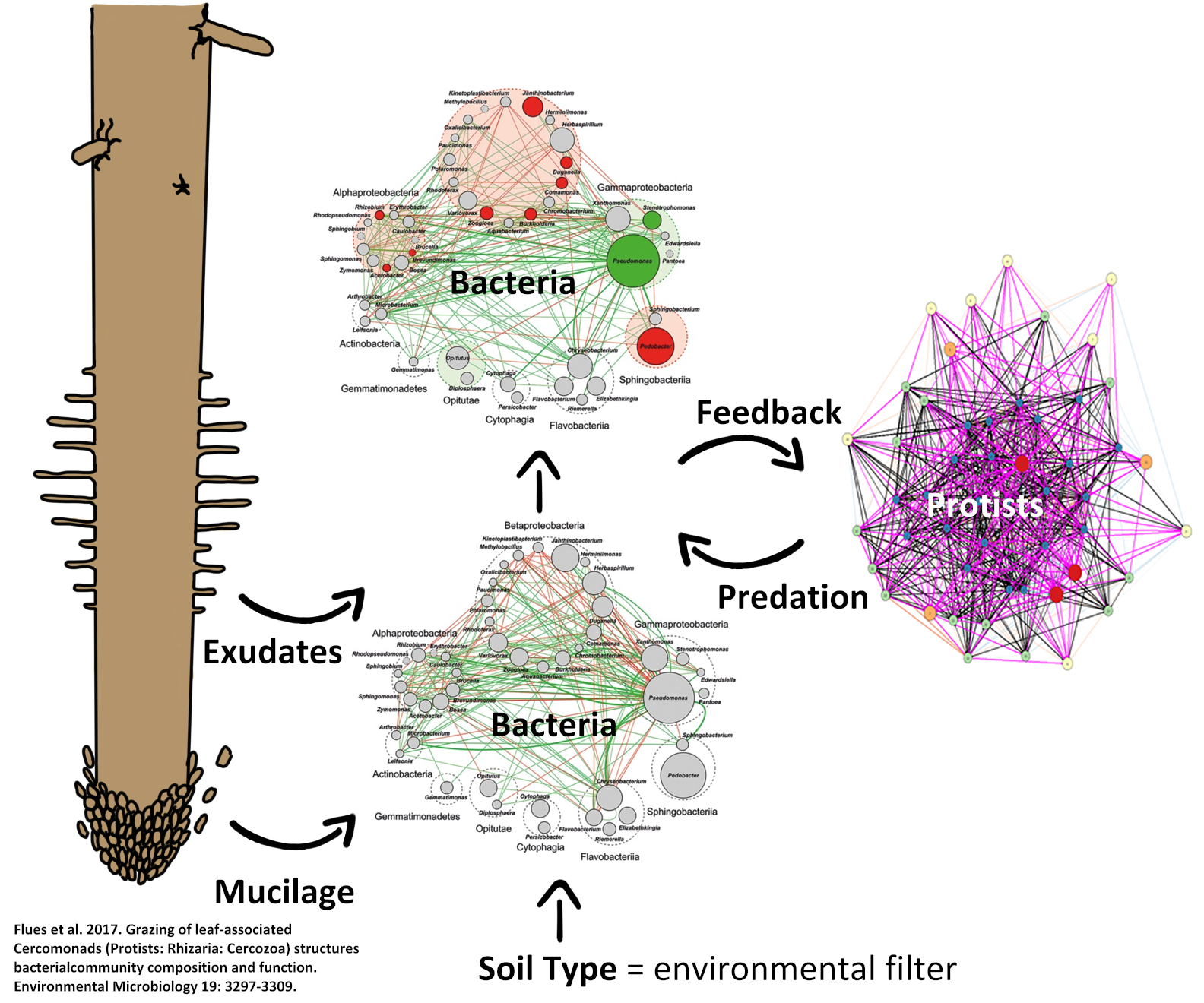P14 - Protist Microbiota
The protist microbiota of maize and their functional roles for the self-organization of the rhizosphere bacterial microbiome (ProtistBiome)

Our research focuses on the protist microbiota of maize and their functional roles for the self-organization of the rhizosphere bacterial microbiome.
Plants recruit specific subsets of the soil bacterial community by the provision and species-specific composition of root exudates. The genetic repertoire of these rhizosphere bacteria, the ‘microbiome’, is thought to enrich the plant genome with specific traits, such as the production of hormones or their ability to mineralize specific nutrients.
Currently, bacterial microbiomes are viewed as rather static communities despite roots are highly dynamic systems.
Mucilage at root tips and exudates at the sites of root hair formation are provided as substrate pulses in time and space for the rapid growth of bacterial communities. Subsequent predation of these bacterial communities by protists will exert drastic changes on bacterial community dynamics, but at the same time exerts a feedback on the community composition of predators. We believe that the dynamic coupling of bottom-up (by exudate resources) and top-down control (by protist predators) is a key mechanism stabilizing the self-organization of rhizosphere microbiomes. Uncovering the dynamic processes of the assembly of whole microbiome food webs along growing roots of maize is at the core of our project.
Link to English scientific abstract
Link to German scientific abstract
